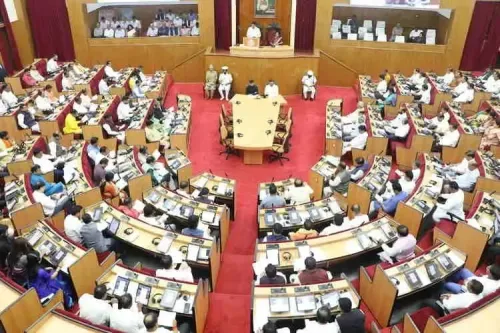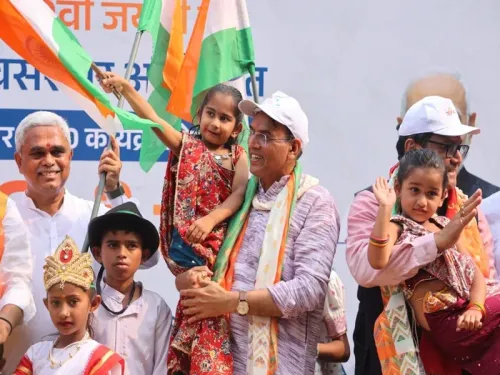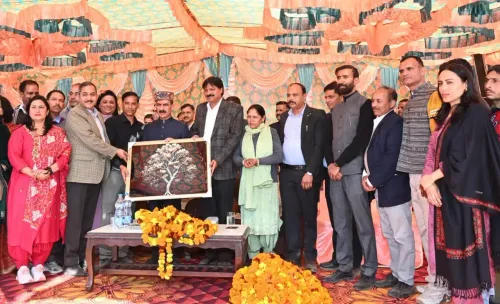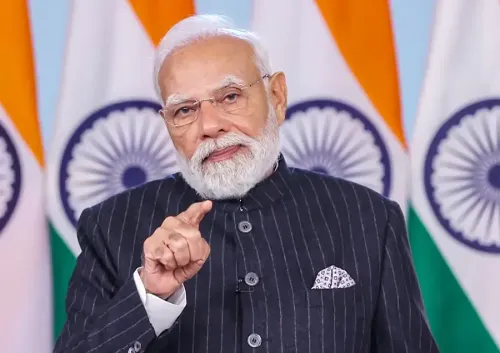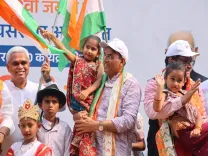Is Emergency a Symbol of Dictatorship? CM Nitish Kumar Speaks Out
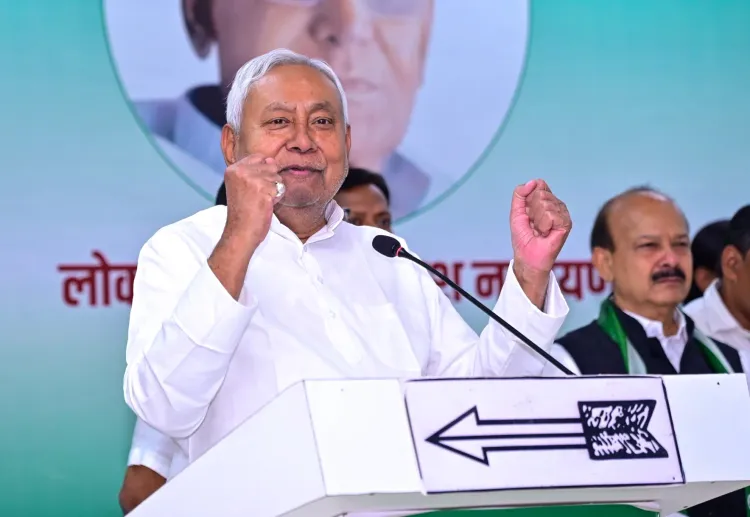
Synopsis
Key Takeaways
- The Emergency marked a significant infringement on civil liberties.
- CM Nitish Kumar emphasizes the need to remember this dark chapter.
- Unity against authoritarianism is essential for democracy.
- Jayaprakash Narayan's leadership was vital in opposing the Emergency.
- Bihar has a historical role in advocating for justice and constitutional values.
Patna, June 25 (NationPress) As the NDA government observes June 25 as 'Black Day' to honor the events of the 1975 Emergency, Bihar Chief Minister Nitish Kumar has joined the chorus of condemnation aimed at the Congress administration of that era. He characterized the imposition of the Emergency as a "symbol of dictatorship" and a grim episode in the narrative of Independent India.
In a message shared on his official X handle, CM Kumar reflected on the crucial events of June 25, 1975, when then Prime Minister Indira Gandhi enforced a nationwide Emergency, leading to the suppression of civil liberties, press censorship, and the imprisonment of opposition leaders.
“We all remember that fateful day of June 25, 1975, when an Emergency was enforced in the country. It is referred to as a Black Day in the history of independent India. The Emergency of 1975 was a clear reflection of the dictatorship of the then-government. During the Emergency, the freedom of expression of the populace was stifled,” he stated.
The Bihar CM also reminisced about the resistance championed by Loknayak Jayaprakash Narayan, who led the 'Sampoorn Kranti (Total Revolution)' movement.
Kumar asserted that he actively participated in the movement and was imprisoned alongside numerous colleagues for voicing their dissent against the repressive regime.
“Loknayak Jayaprakash Narayan initiated a movement against the Emergency. I too was involved in this movement alongside many of my colleagues and vigorously opposed the Emergency. All of us were jailed for speaking out against the dictatorship. Yet, the countrymen exhibited unity and bravery. We fought collectively,” he remarked.
Reaffirming the significance of democratic ideals, CM Kumar highlighted Bihar's role in maintaining constitutional values and social justice.
“The voice of the people is the essence of democracy. It is our duty to safeguard it under all circumstances. Bihar has consistently embodied the spirit of the Constitution, justice, and social equity as the foundation of its development,” he stated.
The Emergency was instituted on June 25, 1975, under Article 352 of the Indian Constitution, citing internal unrest.
It endured for 21 months and was lifted in March 1977. During this time, fundamental rights were suspended, the press was silenced, and countless opposition leaders and activists were imprisoned nationwide.
In Bihar, the Emergency sparked a mass movement under Jayaprakash Narayan, a resident of Sitab Diara in the Saran district, which played a pivotal role in rallying public sentiment and ultimately contributed to the decline of the Congress government in 1977.

